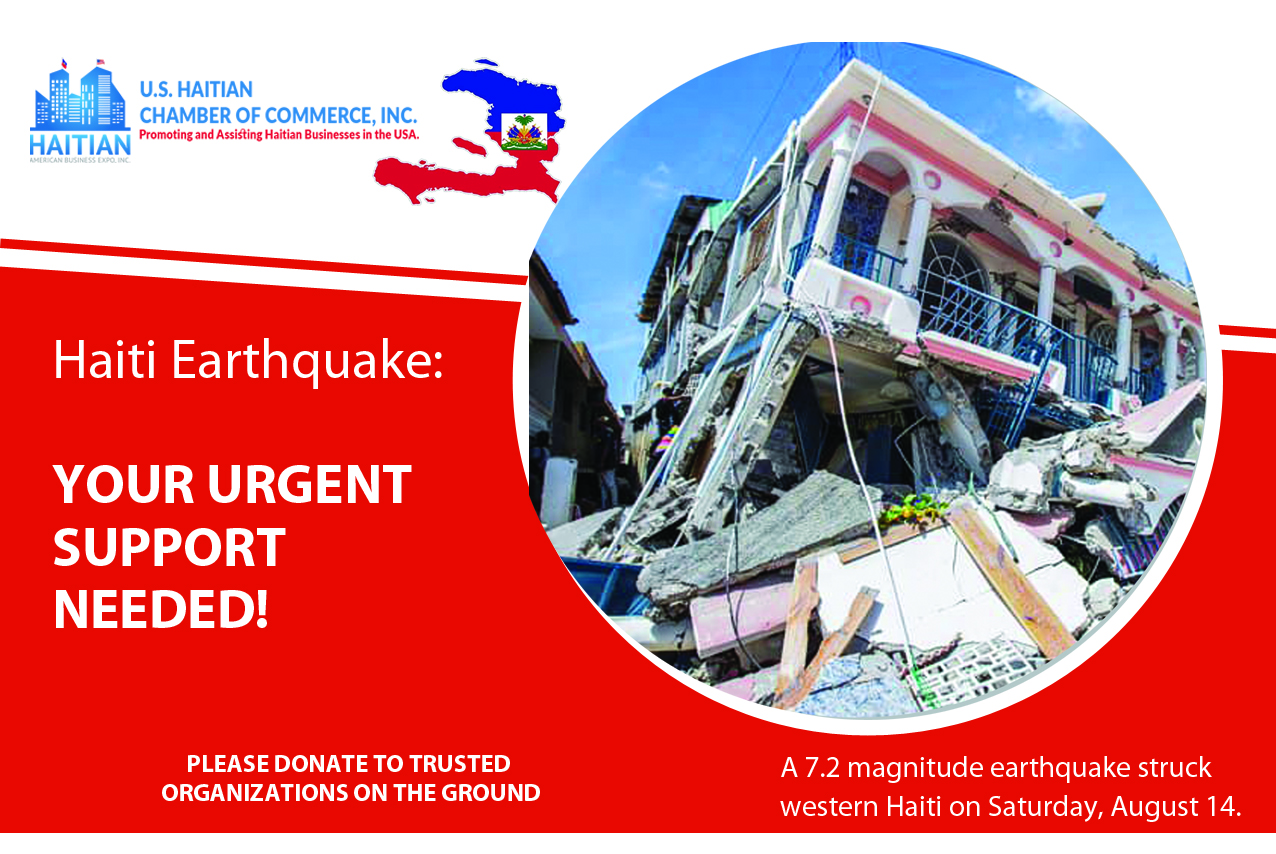Support trusted organizations on the ground with experience in delivering help immediately and directly to affected communities.
Please take a look at the following organizations and consider supporting their earthquake relief efforts.
MEDICAL RELIEF:
Partners in Health
www.PIH.org
St. Boniface Hospital
www.healthequityintl.org
GHESKIO4
www.gheskio.org
Community Coalition of Haiti
www.cchaiti.org
AIR AMBULANCE:
HERO Client Rescue
www.heroclientrescue.com
Ayiti Air Anbilans
www.haitiairambulance.org
RECOVERY (OPERATING IN AFFECTED AREA):
FOKAL (Fondasyon Konesans Ak Libète)/Ayiti Demen
www.ademen.org
Hope for Haiti
www.hopeforhaiti.com
Locally Haiti
www.locallyhaiti.org
Fiends of Paradis des Indiens
www.friendsofpdi.org
SOCIAL SERVICES & LONG-TERM RECOVERY:
PRODEV
www.prodevhaiti.org
FONKOZE
www.fonkoze.org
Ayiti Community Trust
www.ayiticommunitytrust.org
Quixote Center
www.quixote.org/haiti-reborn
Little Footprints Big Steps
www.littlefootprintsbigsteps.com
REPUTABLE SOURCES OF INFORMATION:
Embassy of the Republic of Haiti
Washington, D.C.
www.haiti.org
Protection Civile
www.protectioncivile.gouv.ht
Consulate General of Haiti in Boston
www.consulatgeneralhaitiboston.org
U.S. Haitian Chamber of Commerce, Inc. / Haitian American Business Expo, Inc.
www.ushaitianchamber.org
UPDATE: Urgent meeting with the Consul General of Haiti in Boston (learn more)
5 Things to Consider When Supporting Disaster Relief and Recovery
are already working in the area and have formed close relationships with the communities they serve and other strategic partners. Their capacity and effectiveness will be greater than an organization that hopes to fly in from a different area and oftentimes lacks a complex understanding of the cultural, political, and logistical context.2. Pay attention to accountability, transparency, and governance. As a donor, you want
to ensure that the money you’re donating to an organization is going to directly make an
impact in aiding relief efforts. Visit Charity Navigator and read up on the organization you’re thinking of donating to. On an organization’s Charity Navigator profile, you’ll be able to access the tools, ratings, and information you need to find a charity that matches your philanthropic criteria. You’ll also be able to see their impact in action through Charity Navigator’s partnership with GuideStar, Classy, Impact Matters, and Global Giving.3. Support organizations that have short, medium, and long-term plans for disaster
response. Effective disaster response requires sustainability; an organization should
address the most pressing issues first, then form plans to address long-term recovery for those affected by the disaster. If an organization can’t outline their plan for aid, look elsewhere.
4. Don’t send things that aren’t needed. Supplies that may seem to be obviously needed in the wake of a disaster (clothing, water, food) may not actually be the supplies that people
need or that organizations are able to distribute. Sending donated items that are not useful, are culturally inappropriate, or undercut local markets could result in what many relief workers call “the secondary disaster.” Check with the organization to learn what is actually needed before starting a supply drive or mailing a box to an organization’s office. For example, you might discover that organizations actually need donations to cover purchasing locally-sold supplies in the disaster area as a way to help the local economy recover.
5. Follow up on how your support was used if you don’t hear back. All organizations
should already be doing this, but if you don’t receive an update after your donation, reach
out to find out how your support was used to make a difference. We believe that donors
are entitled to see the impact, and organizations should be ready to provide details about
how funds were spent and what impact was made. It’s part of the philanthropic journey,
and creates trust, transparency, and relationship of accountability.
With a little bit of research on the forefront, you can make a marked difference in the lives of
people affected by a disaster or humanitarian crisis. And it all can be started with a simple search on Charity Navigator.
Source: https://blog.charitynavigator.org/2019/10/5-things-to-consider-when-supporting.html
List of Immediate Needs – Click here to download


